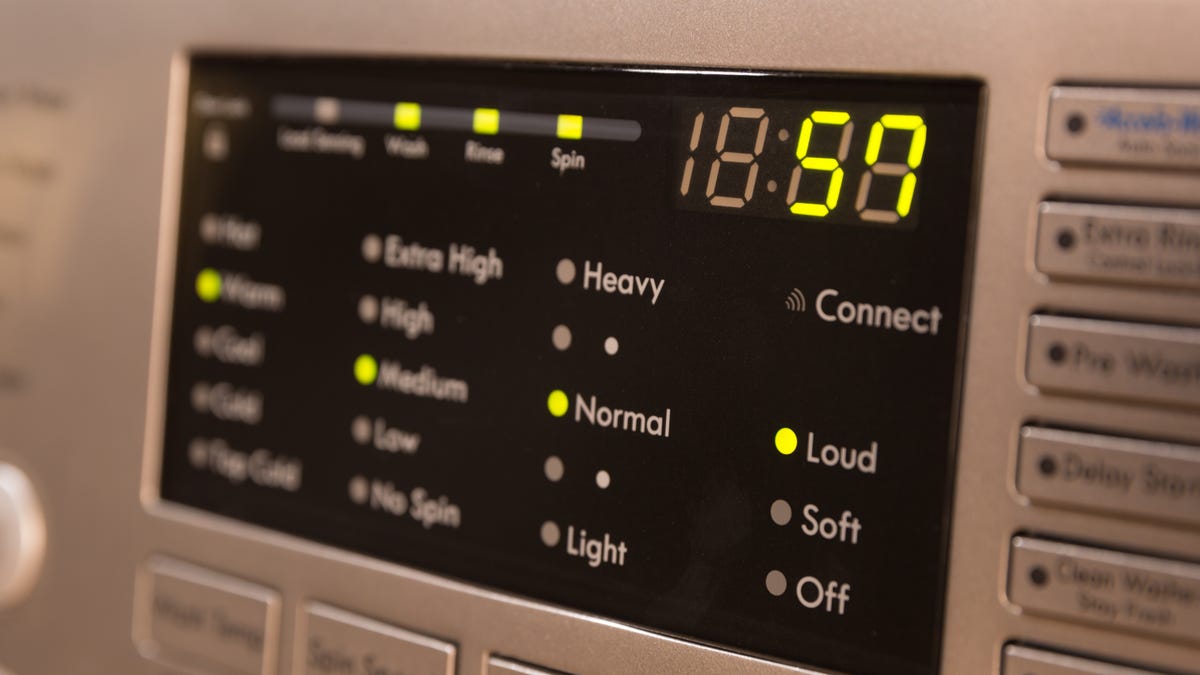5 ways to know it's time to get a new washing machine
Your machine may be on its way to washing its last load. Here's why.

Washing machines , on average, last around 10 years, according to Consumer Reports. If your washer is reaching the threshold, or it's been having some problems, here are some signs the end may be near.
The tub is toast
If your washer is leaking, there could be several causes. Check the hoses and make sure they're tight. Also, be sure not to overfill the tub with clothing when starting a load.
If you've covered those bases and the washer still leaks, you may have a crack in the tub. This is a major fix, and in most cases it would be more cost-effective just to buy a new washer, especially if it's getting close to its 11th birthday.
There's a funk that just won't go away
If you have an older front-loading washer, you may have found it gets a certain... aroma on a regular basis. Some Whirlpool, Kenmore and Maytag front-loading washers made between 2001 and 2010 may fail to adequately self-clean themselves. This can lead to mold or mildew growth inside of the washer that causes a stink.
The companies that make these potentially defective washers settled in a class action lawsuit. You can check to see if your machine is one of those affected here.
If you have an affected washer, you may need to upgrade to something else. Give these cleaning tricks a try first, though.
You have one of certain Samsung washers
A defective part may cause certain top-load Samsung washers manufactured between March 2011 and April 2016 to break apart. The company is offering a free in-home repair or a rebate that can be used for buying a new washer from any manufacturer you choose. If your machine is on the older end of the affected washers, you may just want to opt for the rebate.
You can check to see if your washer is affected by typing in your model and serial number on this site. You can find this information on the rear of the washer. On some 2016 models the info will be under the lid.
It makes a lot of noise
There are several causes of a loud dryer. First, check to make sure that the dryer is level. If it wobbles when you push down on one of the corners, it's not level. Stick something under one of the feet to level it out, or if it has adjustable feet, unscrew the short one so it is long enough.
If that doesn't work, the drum or motor mount may need to be tightened. In this case, you'll need a professional. Get an estimate before committing to any work, though. If the repair is costly and your washer is old, it may just make sense to get a new one.
It isn't efficient
Older washing machines aren't as efficient as newer models. Typically, older models don't regulate the amount of water versus the amount of clothes in the drum to save water, for example.
What is the difference between older and newer models exactly? New Energy Star-certified clothes washers use around 45 percent less water and 25 percent less energy than regular washers. That adds up to a savings of around $45 per year in utility bill costs and 3,000 gallons of water per year. Energy Star estimates that if your washer is over 10 years old, it could be costing you around $210 a year, on average.
If you do decide to upgrade, don't let your machine go to the landfill. There are easy and simple ways to get your old washer recycled. Here's how.

